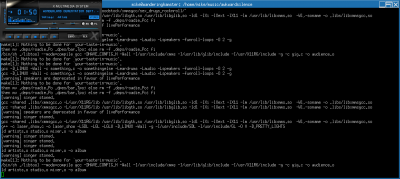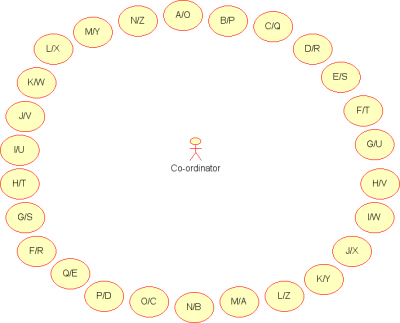I think having domain registration controlled by either private business or the state is a bad thing. There’s an idea I’ve been toying with for nearly a year now, which is to construct a peer-to-peer based domain name system. I’ve now finally started hacking together a prototype (I had fiddled with a small http proxy based version last winter, but never finished anything serious).
I’m building it so it’ll integrate reasonably naturally with existing systems, it communicates using the DNS protocol specified in RFC 1035. This means that to the user .annet domains are just as functional as any other, they can run nslookup mikeasoft.annet send mail to mike@mikeasoft.annet or type http://www.mikeasoft.annet in to their browser and all will function as expected.
On the technical side what happens is quite different though. Each AnNet DNS client also acts as a server helping to host a massively distributed database of domain registrations. The domain name to resolve is passed through a series of hashing functions which then return possible ranges of nodes within the network that might hold the relevant data; the hashing functions take in to account the estimated size of the network, for example with a small network a larger proportion of data will be hosted by each node. A lot of redundancy is built in to the network so that many servers will have the required information, allowing the client to gain some reasonable level of certainty as to the authenticity of the response. Connection to the network is bootstrapped in a similar way to Gnutella, so the client needs to know about at least one other node on the network and from there learns about the state of the network in general.
Domains are registered to a public key (PGP based), and any requests to change a domain’s information must be sent signed with the corresponding private key, thus allowing people to change the status of their domains and have the changes propagate throughout the network with minimal chances of hijacking.
I am not making any provision for dispute resolution. Dispute resolution ostensibly tries to solve issues where someone registers a domain that someone else believes they have a “right” to, however I don’t believe that registries should act as arbiters of domain justice. People can persue their trademarks through the legal system and have the state force one party to reassign ownership of their domain if they wish, but AnNet won’t help them circumvent the owner. So if someone’s stubborn enough they can still keep their domain at the expense of fines and even possible imprisonment (unlikely, but people make ethical stands about seemingly odd things sometimes). It’s purely first come, first serve as far as the system is concerned.
However, I am considering possible safeguards put in to place to revoke any domains registered to a specific public key if that key attempts to flood the network with registrations. I’m still not sure about this.
The prototype is still in very early development, it’s only had a couple of days worth of hacking on it (most of which consisted of me puzzling over the DNS protocol), but I thought it’d be nice to stick a reasonably detailed post up about my plans so people can criticise the impracticality of it all ;).





